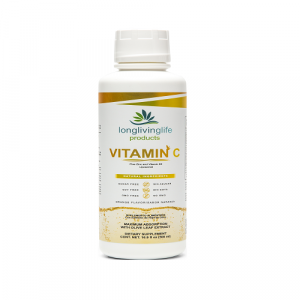| Long Living Life |

| No Title | 0.06 MB |
| Registration Date | 23 Jun 2020 |
| Revision Date | 23 Jun 2020 |
| Share |
Food Supplements
Food supplementVitamin C
NanoliposomeIt facilitates the production of collagen that the body needs to strengthen blood vessels, teeth, and gums, as well as to maintain healthy skin. It stimulates the immune system by stimulating an anti-influenza effect, especially when ingesting zinc. Vitamin C is a powerful antioxidant, which decreases oxidative stress; a substrate for ascorbate peroxidase, as well as an enzyme cofactor for the biosynthesis of important biochemical compounds. It acts as an electron donating agent for 8 different essential enzymes that the body requires to nourish it cellularly. In people with chronic diseases, it could work as an auxiliary to reduce the effects and help to restructure most of the vital organs, promoting vitality and energy to stabilize these conditions.
Liposomal vitamin C can help fight cancer. Liposomal vitamin C, due to its high bioavailability, can be a great alternative to IV administration. Liposomes are less bothersome to patients and painless. In a study in mice with cancer, liposomal vitamin C was even better at fighting cancer than traditional vitamin C. It has a good safety profile, it can improve symptoms and quality of life in cancer patients.
Vitamin C bound to a fatty acid (palmitoyl ascorbate) in small liposomes killed cell cancers much better than free vitamin C
Nano-liposomal vitamin C is a food supplement in the form of a liposome (liquid) that contains vitamin C supplemented with zinc as the main ingredient. Vitamin C is one of the best-established traditional natural antioxidants we know of, while most animals have the ability to produce it internally, three species do not. Guinea pigs, primates and humans, so they must get it from the diet. Vitamin C acts as an essential cofactor in enzymatic reactions, facilitating the production of collagen necessary to strengthen blood vessels, teeth and gums, as well as to maintain healthy skin. It stimulates the immune system especially when ingesting zinc.It is a powerful antioxidant that decreases oxidative stress. It acts as an electron donating agent for 8 different essential enzymes.
An essential trace mineral, it is perhaps best known for its role in immune system health, as zinc deficiency is associated with increased cold and flu. It has antioxidant properties. Zinc was also found to play a key role in regulating the way calcium moves in your heart cells.
Activates proteins that play a role in blood clotting, calcium metabolism, and heart health. One of its most important functions is to regulate calcium deposition. In other words, it promotes calcification of the bones and prevents calcification of the blood vessels and kidneys.